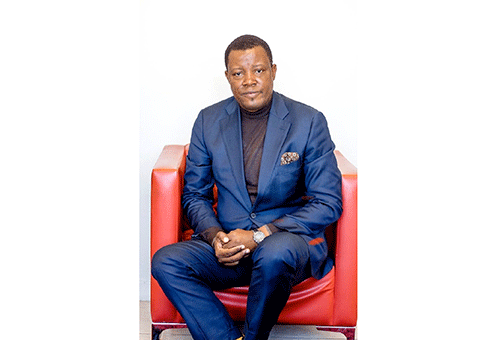After a decade at the helm of the Popular Democratic Movement and several attempts for the presidency, opposition leader McHenry Venaani is ready to hand over power to any leader capable of taking PDM to greater heights.
However, for now, he will contest the upcoming presidential elections, and run one more time before bowing out.
According to PDM’s constitution, adopted in 2017, the party president is elected for a five-year term by the national congress, and is eligible for re-election, but this is limited to three consecutive terms per individual. Venaani was elected as PDM president in 2014, and was re-elected in 2019.
“So, this is my last attempt for power. If I don’t get it, I will voluntarily hand over power to whoever is capable of leading the organisation. I am a democrat and believe that not only my ideas should prevail. I will give up power freely,” he announced.
Venaani became Namibia’s youngest MP in 2003 at the age of 25, and was also the party’s youngest CC member at 18. He was elected secretary general in 2002, and became president of DTA (now PDM) in 2014, taking over from the late Katuutire Kaura. Kaura had led the organisation for 15 years before being expelled from the party, and joining Swapo in 2017.
Evidently casting aspersions at his predecessors, Venaani said he will be the first president who will not retire to join another party.
“I don’t want to join another party. I believe in this party. I came into this party as a boy at 18, became a member of the central committee, and rose through the ranks to become the president at 36,” he asserted.
While expressing his willingness to give up power, he cited examples of former opposition leaders on the continent, such as Hakainde Hichilema, Lazarus Chakwera and Akufo-Addo from Zambia, Malawi and Ghana, respectively, who led their parties for 20 and 15 years before becoming state presidents.
“President Hakainde Hichilema of Zambia struggled for 20 years to become president, and I have only been president for 10 years. Even when he is running for the second term, no one is complaining that he has led for that long because he is the incumbent. The purpose of the leader is to bring power to the party,” he said.
Venaani said people mistake state power with political power, which he claimed are different. If re-elected during the upcoming elective congress in August, his third term, which will also be his last, would come to an end in 2029.
Political analyst Natji Tjirera commended Venaani for complying with the statutory provisions to step aside. Tjirera said Venaani has established himself within the political realm, and “has statesman-like qualities.” However, while his end of term might be an opportunity for aspiring presidents in the party to get a chance to lead, who will take over from him remains the question.
Due to this, Tjirera advised the party to strategically position itself, and elect a competent leader.
“I hope the youth will be able to take over. It is a challenge for them, and one of the issues is that Venaani has centralised the leadership, and become the voice and face of the party to such an extent that he has overshadowed everybody else,” said the analyst.
Over the years, there have been speculations that former party member Vipuakuje Muharukua might have been a good contender for the presidency. However, he recently left the party to join Swapo.
“Muharukua would have been a good candidate, Elma Dienda too, but the party just needs to play its cards right,” said Tjirera.
PDM is expected to hold its elective congress on 22 August 2024, which will determine the next leadership. New Era is informed by insiders that Venaani will contest for the presidency unopposed, while there is fierce competition for other top six positions, with party members eyeing these highly-coveted positions, already creating factions among themselves.
No First Lady
Among many of his promises once elected to power, topping the list is to scrap the office of the First Lady. The opposition leader feels the office of the First Lady is an expensive exercise for the country.
“First and Second Lady offices will not be functional institutions in this country. Those resources must be spent where people are dying of hunger,” said Venaani.
He estimated that the funds spent on those offices could stimulate 100 companies.
“I will not be the president that receives a clothing allowance from the government. Another thing we must address is giving the president a house worth N$30 million. You are giving a house to someone who already has houses; it’s costing the country so much,” he added. –ashikololo@nepc.com.na



